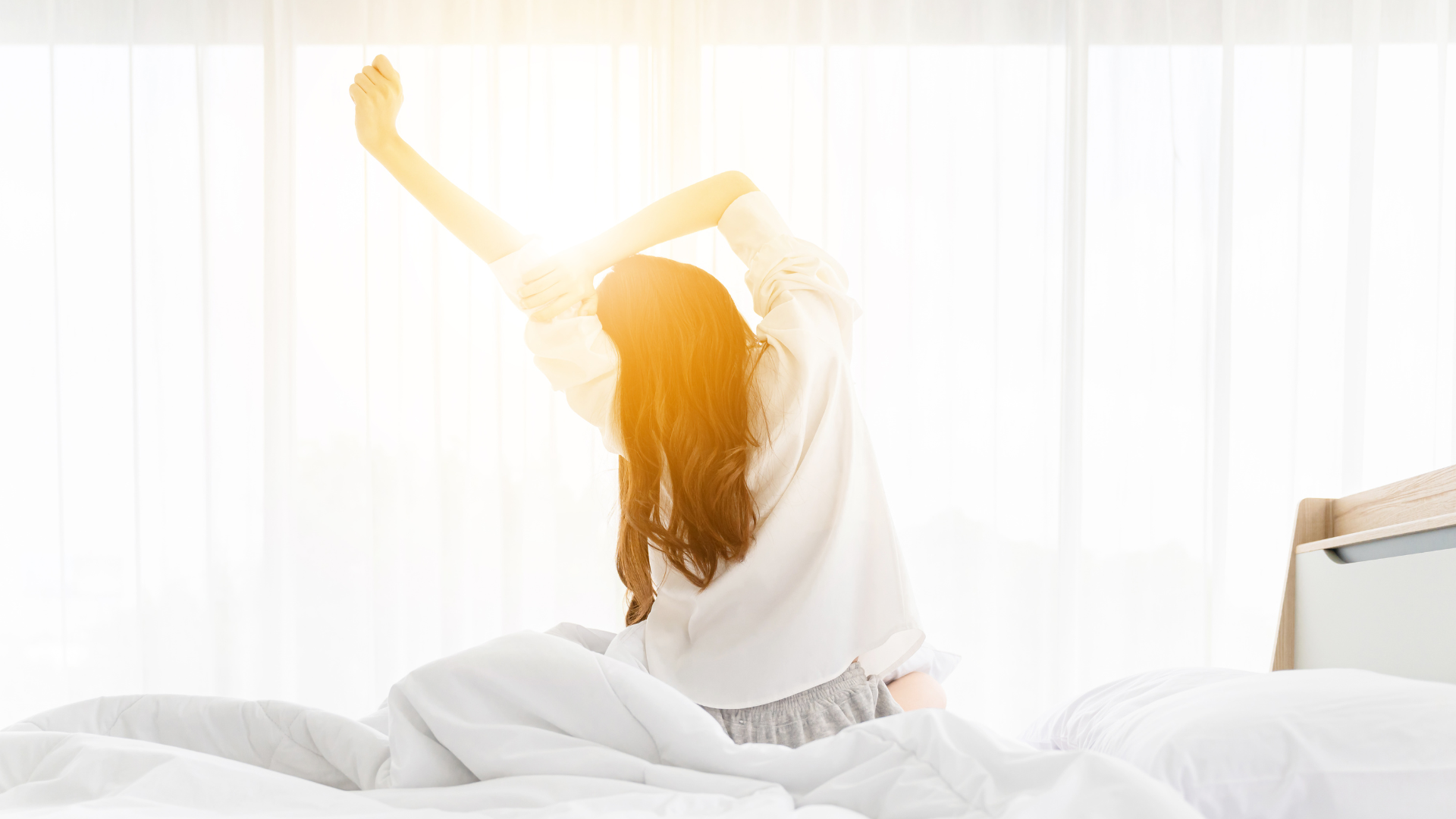Seven tips to boost your sleep wellbeing
We asked our resident sleep and wellbeing expert, Natalie Pennicotte-Collier to share seven simple steps to boost your sleep wellbeing.

So why is it important to improve our sleep wellbeing?
“As the sun gradually starts to rise later across the month of September, it’s a really good time to focus on how you can improve your sleep. A good sleep routine is the cornerstone to health & wellbeing and by focusing on creating a winning routine, you can create a supercharged sleep and recovery process with my seven simple steps that will set you up for the winter months ahead.
“Think of each step below as a key component to good sleep; when implemented together, they’ll make you really connected to your sleep and, as a result, grant you the perfect sleep environment too.”
Step 1: Create a Sleep Sanctuary
“Evaluate your bedroom to ensure it’s conducive to rest which means a cool temperature (ideally 18 degrees) despite the colder night’s drawing in. This will also involve clearing the space of clutter and making sure everything is clean and hygienic too. In terms of light, ensure your bedroom is really dark or use an eye-mask to block out any unnecessary light that can disturb sleep.”
Step 2: Set your wake up times & stick to them
“To significantly boost your sleep routine, set the same wake up time each day and stick to it for seven days in a row to help you get into a wake up habit that suits you. On the weekend you could wake up an hour later to give yourself a lie-in boost, but only if you have to.
“Generally keeping a set routine is the key to overall sleep improvement and you can always awake at the same time on weekend days but ease yourself into the day more slowly by enjoying a hot drink and stretching at leisure too.”
Step 3: Wake up Well
“For some, the first hour upon waking is the most important of the day and how you wake up can set the intention for the hours that follow or to be precise the 1440 minutes! Think about how your alarm sound will wake you up; especially if you use your mobile device instead of an analogue alarm clock.
“Consider switching your alarm sound to a new sound from nature to wake you up peacefully and a new alarm sound will also signify your new ‘wake up well’ routine too. Upon waking, taking time to stretch and breathe well can help set you up well for the day ahead, in fact just seven minutes of focus on yourself can make an enormous difference. ”

Step 4: Identify your Sleep Signs
“Begin to pay attention to how you feel during the evening and in turn you’ll be able to identify your sleep cues. Start to notice when you feel sleepy and use that as your cue to go to bed.
“If you don’t seem to feel tired it’s a good idea to spend some time focusing on winding down and relaxation until you feel you’re ready to hit the pillow. Your body knows best, so learn to listen to it.”
Step 5: Lose the Light
“Low lighting is the best way to put your body into wind down mode ahead of a good night’s sleep. Blue Light isn’t helpful towards a healthy sleep state, and this is emitted from smartphone screens, your computer, TV screens and even from energy-efficient light bulbs.
“Too much blue light can interfere with the brain’s production of melatonin – the hormone that tells your body when it’s time to sleep. Try to stick to a blue light shut down two hours before bedtime and furthermore try blue light blocking glasses to help protect you. Swap out any compact fluorescent bulbs for red or amber bulbs in your lamps too.”
Step 6: New Food Habits
“Making space between food and sleep improves the quality of your sleep so that the time for digestion and the time for sleep are separate. Every organ in your body has preferred times for when it performs certain functions. Digesting food when your digestive system is supposed to be inactive can throw off your sleep circadian rhythm which disrupts your sleep stages and makes you feel tired the next day.
By moving your evening meal to an hour earlier and cutting out any snacking before bedtime you can give your body the time it needs to perform both integral functions keeping to its preferred clock and ensuring a restful sleep.”
Step 7: Power your Mind to Sleep Wellbeing
“Sleep is without doubt the best thing you can do for your body. Scientific research shows that when we are deprived of sleep it can have a huge impact on our wellbeing.
“In the infographic below you can see the pillars involved in a good sleep routine. By making good choices for your hydration, fitness, food and mind, you will support your sleep and therefore overall wellness.
“To power your mind to better sleep and better choices, try one of the meditations I’ve created for Hypnos and build this into your morning and evening routines too.”

